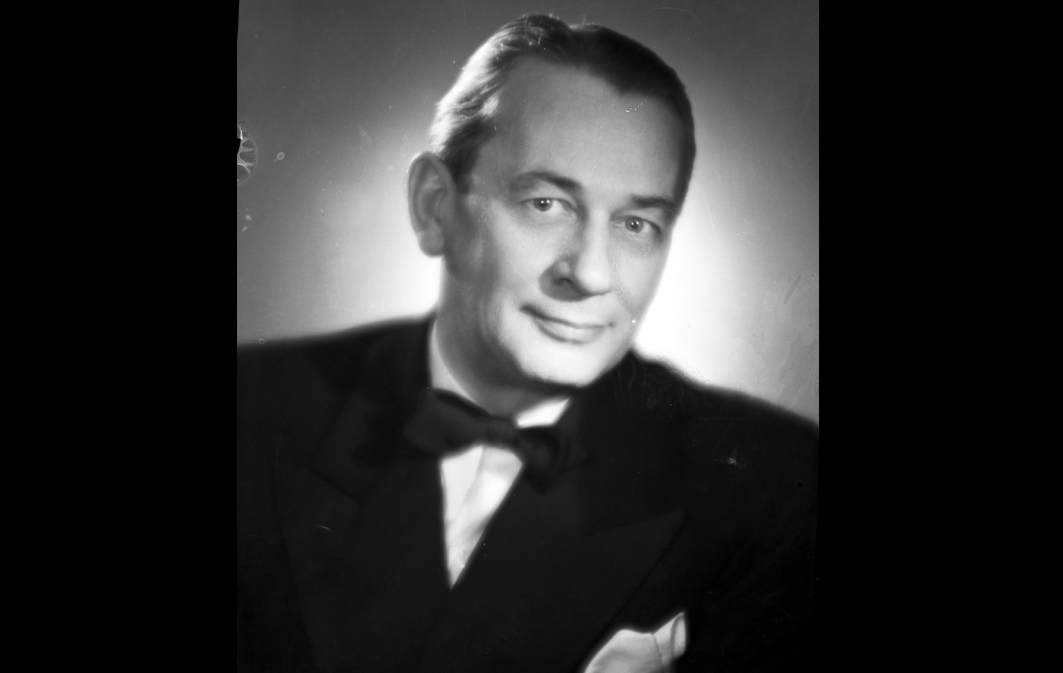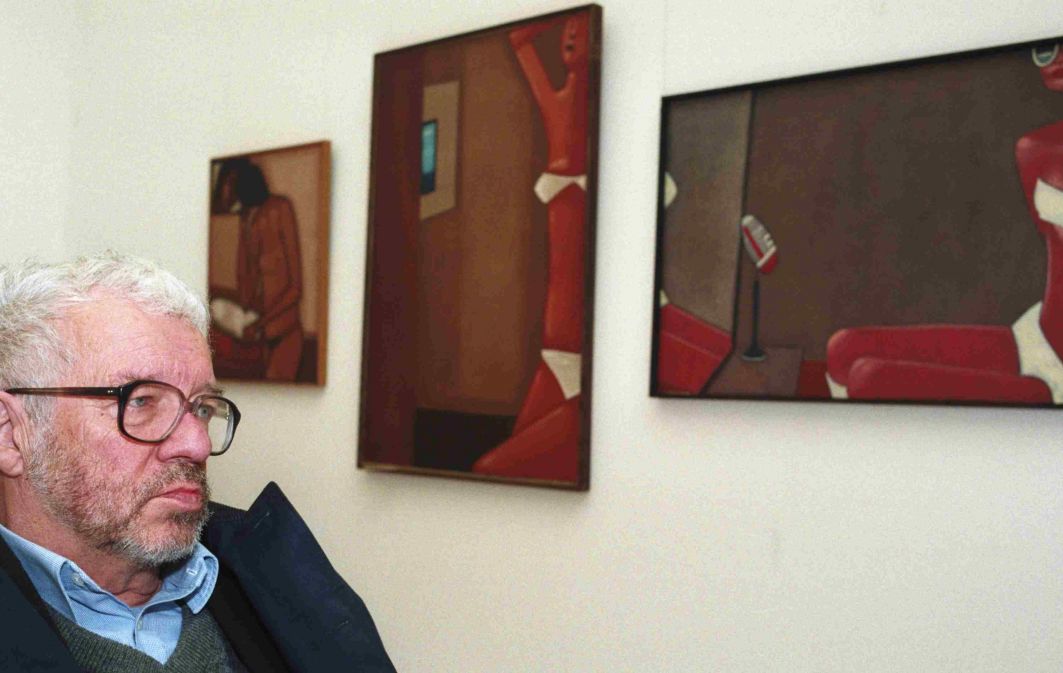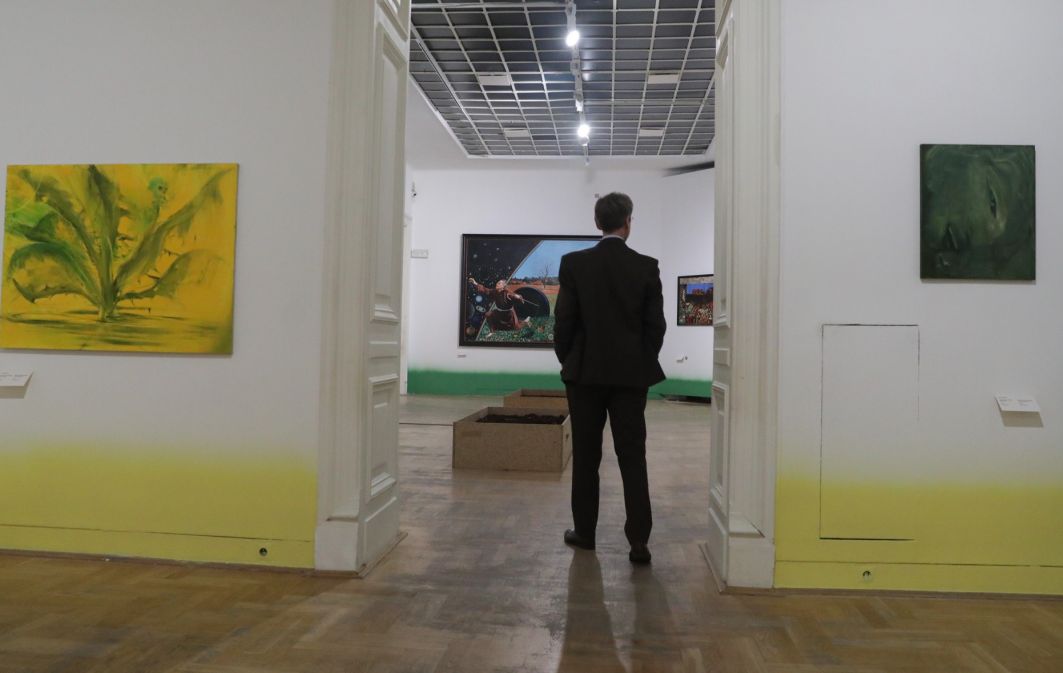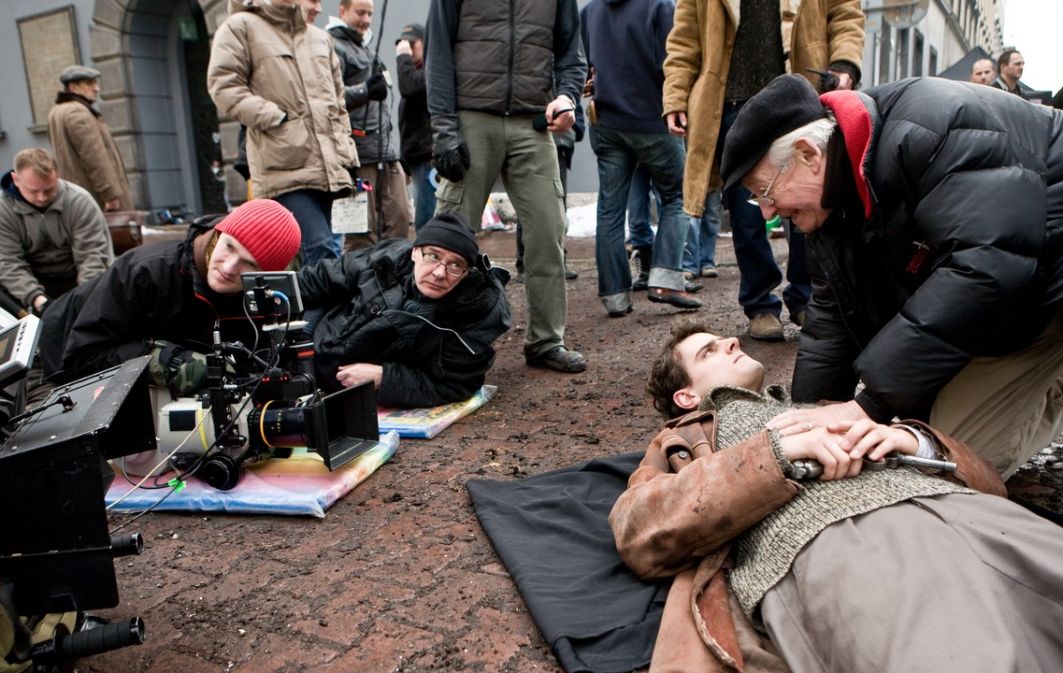Everywhere not at home, always perfectly strange. He wrote the most sorrowful love letters of the 20th Century
08.03.2022
As one of the highest-paid writers of his time he was collecting carpets, antiques and pictures. After his death at Lago Maggiore there should have been a museum. Unfortunately, Remarque’s last wife spent over a dozen last years of her life in that luxury, browsing fashion magazines and consuming alcohol. After she passed away it turned out the she had forgotten to pay county taxes.
– Ich rufe von Warschau, mein name Joanna Rawik (I’m calling you from Warsaw, my name is Joanna Rawik).
On the other side of the phone line there was silence, then a pretty long talk, partly with the secretary, and after a while with the director of Erich Maria Remarque Peace Centre run by Osnabrück University, Thomas F. Schneider, PhD.
Couple of days later I was ringing the bell at the Institute. The initial silence in the phone shouldn’t have been surprising. I was welcomed with all due ceremony as an incarnation of the main characters of “The Arch of Triumph” in one, living person. In addition to this, Joanna Madou was a singer of Romanian origin. But before I called the Institute nobody in Osnabrück knew there was a person surnamed alike the main hero of Remarque’s famous novel.
I myself don’t know precisely why it happened so that immediately after having finished Remarque’s work I changed my name to Rawik. I knew nothing about the author. I was enchanted by his vision of Paris and I knew I absolutely had to see this city. It was at the turn of the fifties and sixties, Paris was the capital of the world, culture, literature, philosophy, fashion and poetic song.
The moment was particular. I was in the powerful grip of existentialism. It was the great epoch of clubs and student basement cafés; black jumpers were predominant, so was the thick cigarette smoke – even genuine Gauloises or Caporal cigarettes would occur – Algerian Gelala wine was flowing like water and it was surprisingly cheap. We were exhilarated by poetry and French chanson as well as by jazz.
We read J. P. Sartre, Simone de Beauvoir, Camus passionately along with Faulkner and Hemingway. We plunged into this Polish existentialism of ours as into a refreshing spring. In “The Roads to Freedom” by Sartre, from which I understood but a little (because it’s a roman à clef) I found a motto for life. I have remained faithful to it although it sounds simple: you have to do what you please but control yourself incessantly.
Within that intoxicating mixture Remarque was somewhat different, definitely closer to my heart although I had no idea, why. For many years I had been firmly positive, he had been writing his “Arch of Triumph” walking the streets of Paris, so much did I identify him with doctor Rawik. It was only very late I learnt he was writing his novel in New York, during WW II.
In Osnabrück doctor Schneider took me to the room in which I was left alone with the record of the writer’s last interview for ZDF. I knew his photographs, pictures, I managed to amass considerable knowledge on this so much “mine” author, I read almost all of his articles. And I’m going to master the rest within a couple of years.
The encounter with the virtual Remarque turned out to be astonishingly live. Above all because physically speaking – and not only – he appeared very similar to my father. Slender, calm, with delicate features and subtle smile, elegant with good taste. He seemed to be so very close as I had knew him all my life.
“The arch of Triumph” was first published in 1945. Its Hollywood screen adaptation of 1948 was a great disappointment. The star-studded cast didn’t really matter to me. The then popular Ingrid Bergman (“Casablanca”!) starred as Joanna Menou was contradicting the original character. Madou is phenomenally frail, Ms Bergman being an incarnation of physical health and a strong psyche. Rawik was portrayed by a popular film heart-throb Charles Boyer who played everything the same way and didn’t have anything apart from looks.
1998 was declared the year of Erich Maria Remarque, on the occasion of his birthday. The Institute in Osnabrück published, among others, a special album in which a note was made on “The Arch of Triumph” Polish stage adaptation directed by Krzysztof Zaleski screened in 1993 as en episode of the “Television Theatre” (Teatr Telewizji) series. The Cologne-based publishing house Kiepenheuer & Witsch celebrated the anniversary with a solid biography of EMR entitled “Als ware alles das letzte Mal” (“As if everything was for the last time”) by Wilhelm von Sternburg. The same publisher honoured the writer with a five-volume collection “Das Unbekannte Werk” (“The Unknown Work”) comprising diaries, first short stories which EMR didn’t wish to re-publish in his lifetime – in one of them the Ravic (original spelling) surname appears for the first time; short prose and poems.
One of the volumes contains the prolific correspondence with Alma Mahler, Gustav Mahler’s widow, wife to the playwright Franz Werfl; with the editor Witsch and Stefan Zweig. Among the recipients there are: Upton Sinclair, Felix Guggenheim. This monumental work was edited by doctor Thomas F. Schneider.
The Polish publisher Czytelnik, monopolistic editor of EMR’s works celebrated that anniversary with a modest albeit significant volume entitled “Wojujący pacyfista” (“A Militant Pacifist”). It contained articles and interviews from between 1929 and 1966.
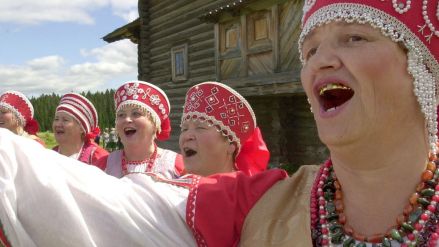
The fall of communism has not changed the nature of the Russian soul.
see more
All EMR’s books are dealing with war, with refugees. And although his prose seems delicate, even lyrical, strangely enough it appears cruel at times – and maybe that is what Remarque’s talent consist in. In his paper Thomas Schneider quotes a passage from “The Black Obelisk” (publ. 1956), whose plot is set in the times of great depression, inflation, first signs of national socialism, the author alarming that by the mid-50s nothing had changed.
The world is yet again in the pale light of the apocalypse, the smell of blood and the dust of the final destruction have not yet vanished, and already laboratories and factories are working at full steam to keep the peace by inventing weapons with which it is possible to blow the whole globe. Peace for the world! It has never been more talked about and never less done for it than in our time
How relevant those words sound nowadays!
Beginning with his literary debut “All Quiet on the Western Front” Remarque enjoyed a great popularity, he was read across Europe and the wider world; all his novels were almost immediately made into movies. In the American adaptation of “A Time to Love, a Time to Die” he even played a major role.
His success turned against him – Remarque’s book were burnt at Nazi stakes along with those of Thomas and Heinrich Mann, Stefan Zweig, Kurt Tucholski, Bertold Brecht and others. He was deprived of German citizenship.
At that time EMR has settled down in his picturesque Swiss residence – Casa Remarque at Lago Maggiore, which he had bought a few years earlier As one of the highest-paid writers of his time he was collecting carpets, antiques and pictures.
Unfortunately, Remarque’s last wife spent over a dozen last years of her life in that luxury, browsing fashion magazines and consuming alcohol. After she passed away it turned out the she had forgotten to pay county taxes, so the residence was expropriated by the county which must have been aware of the situation beforehand. Paulette Goddard managed however to bequeath the writer’s archive to the New York University Libraries, a fact I don’t want to comment here.
Information can be found on Wikipedia that in 1928 EMR changed his name from Remark to Remarque. This is distortive because that which of the writer’s ancestors altered the spelling from German to French remains hazy. The family originating from the highly-francized region of Alsace, the writer returned to the original version of his surname.
He had well-deserved success with women, often those wise and well-off but he would chose the banal. Except for the shining star Marlena Dietrich. She was a great, perhaps the greatest love of his life, however he didn’t engage, even provisionally, in any closer relationship with her.
They met in autumn 1930 at a bar in Eden Hotel in Berlin, there were occasional rendezvous in the aftermath, but it wasn’t until September 1937 until a friendship and something else united them in Venice.
Doctor Thomas F. Schneider along with the writer and literary critique Werner Fuld collected, made a choice and commented on EMR’s letters to Marlena Dietrich, added on some laconic replies from the actress and published all together under the title of “Sag mir, das Du mich liebst…” (“Tell me that you love me”) in 2001 (Kiepenheuer & Witsch, Cologne). The Polish edition was published in 2002 (Wydawnictwo Książkowe Twój Styl).
A drama was born – we owe to it the most beautiful, most longing, most sorrowful love letters of the 20th Century” – ¬reads the “Introduction” by Werner Fuld. “It was the last love story of this century, a most fantastic illusion full of lies and self-deception, bathed however in the glow of Bengal lights and Remarque’s language. In no book of his did he emerge a writer that much as in those intimate letters to his cold lover. He was aware of the pointlessness of this relations, yet he was incapable of breaking up.
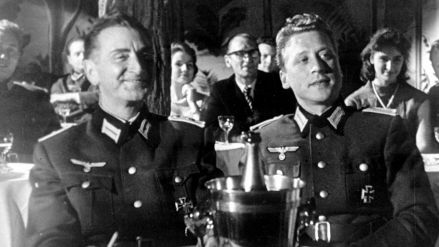
Hundreds of millions of bottles streamed into Germany. Many wineries made fortunes.
see more
From this very “Introduction” we can also learn that a Parisian friend of Dietrich’s, Johannes Mario Simmel, author of meticulously-edited Marlena Dietrich’s memoires “Marlena D. par Marlena Dietrich (Paris, 1981, German edition 1992) accounts for the first conversation between the actress and the writer: On his way to the hotel he said: To make it clear from the beginning and so there are no stupid talks later – I’m totally impotent. But if it is your wish, I could also be a little, charming lesbian. Marlena: God, what a relief! How much I loved this man!.
In “The Arch of Triumph” we can read a precise account of Dietrich’s looks which is a reference point for the image of Joanna Madou, a secondary cabaret singer: He saw too pale a face with protruding cheekbones and eyes widely set. It was so unmoved and resembling a masque, sort of sunken, and her eyes in the street lamp light shimmered with glass emptiness – that’s why she drew his attention(…) Enigmatic beauty, past its prime, high eyebrows and her face whose mystery was its openness. She didn’t conceal anything therefore she didn’t reveal everything. She promised everything and nothing at the same time.
After having read this passage I already knew why Remarque was so dear to me, dearer than the existentialists. In this type of manhood there was something I appreciate very much, because it makes it possible to confess one’s most intimate problems to a beloved woman. Besides, the main character of “The Arch of Triumph” felt everywhere not at home, always perfectly strange. I myself felt the same most of my life.
I read in one of Remarque’s early short stories that the instinct is always right. It also seemed particularly important to me as I made instinct the main principle in my life. By which I judge people and facts. And I back out from negotiations or relations if my instinct rings the alarm bell.
I met doctor Schneider again after many years, in Katowice. On October, 11-13, 2021, 50 years after Remarque’s passing a conference was held at the Silesian University. It was prepared in cooperation with Osnabrück University with panache and veneration. Ms deputy dean, Renata Dampc-Jarosz, PhD, responsible on the Polish side, invited me to the event.
The conference was an opportunity to listen to many lectures on the writer’s work. After the principal Ryszard Koziołek’s initial speech Thomas Schneider took his way, pondering what is Remarque’s legacy in the time of pandemic.
My exposé closed the session next day. I ended it was a monologue from “Tadeusz Kantor in Paris” by Paweł Zapendowski, a spectacle from 2018, in which I played myself meeting Joanna Madou and doctor Rawik in a café next to the Arc de Triomphe.
They drink more and more calvados and I already know everything about them. I am leaving. In front of me there is a large square, street rays going separate ways like a star. The square being lit up by yellow street lamp moons. The majestic Arch of Triumph is fading out as if supporting the melancholic sky and is sheltering the Tomb of the Unknown Soldier. It looks like a tomb of all mankind”.
– Joanna Rawik
– translated by Dominik Szczęsny-Kostanecki
The author is an actress, singer and a journalist. She was born in Chernivtsi. She spent her childhood in Romania (her mother was Romanian). As a singer she debuted in the mid-50s of the 20th Century in the journalists’ cabaret “Kaczka” (“ The Duck”). She studied in 1955-56 at Irena and Tadeusz Brylski Theatre School in Kielce. She hosts her own program “Sztuka jest magią” (“The art is magic”) on Radio Wnet.






